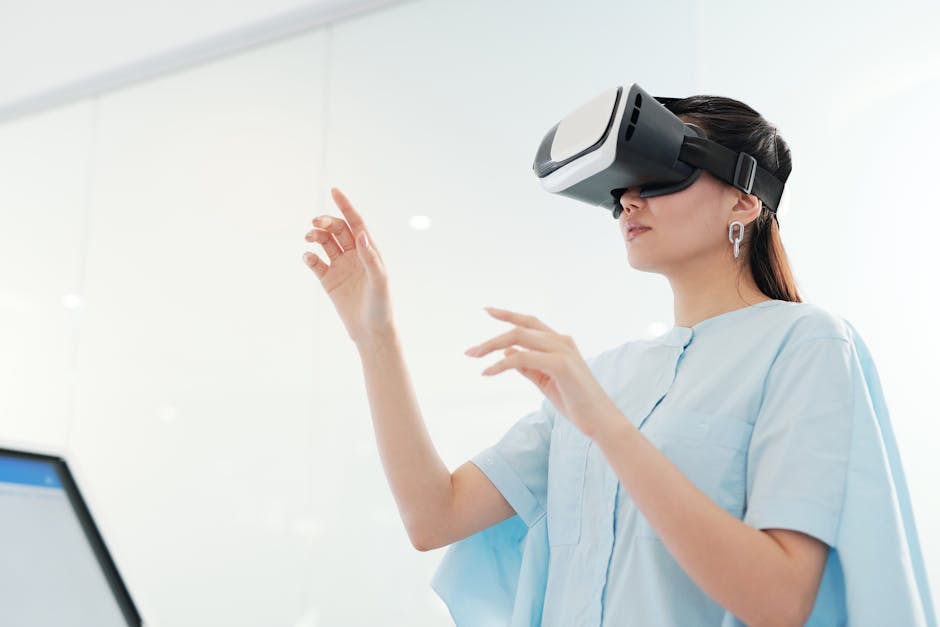The entertainment industry is in a constant state of flux, driven by technological advancements and shifting consumer preferences. Platforms for music and entertainment, consequently, will undergo significant transformations. Predicting the future with absolute certainty is impossible, but by examining current trends and potential breakthroughs, we can discern some key directions this evolution might take.
A fundamental shift is already underway, moving away from solely centralised, platform-driven consumption towards a more decentralised and user-controlled model. Traditional streaming services, while still dominant, face increasing competition. This decentralisation isn’t just about individual artists distributing their own music; it’s a wider paradigm shift involving ownership and control over user data and experiences.
One compelling development will be the rise of user-generated content platforms within music ecosystems. Imagine interactive music experiences where fans contribute to the evolution of tracks, remixes, and even entire albums. Tools and interfaces will allow for this collaborative creation, fostering deeper connections between artists and their communities. This mirrors the growth of collaborative platforms across other sectors, suggesting a future where fandom becomes a vital creative component.
Furthermore, personalized and adaptive experiences will become standard. Entertainment platforms will leverage AI and machine learning to curate content tailored to individual tastes. Beyond personalized playlists, this will encompass dynamic narratives, interactive storylines within music videos, and even customized live performances. Imagine an opera where the plot unfolds based on audience reactions, or a concert where the music reacts in real-time to the movements and expressions of the crowd. This tailored approach caters to a generation accustomed to bespoke experiences in all facets of life.
Immersive technologies like virtual reality (VR) and augmented reality (AR) are poised to revolutionize how we consume and engage with music and entertainment. VR concerts could transport fans to a virtual concert venue, offering unparalleled sensory experiences. Imagine an AR filter overlaying a musician’s image onto a user’s physical surroundings, or a VR experience that allows interaction with 3D versions of iconic music videos. This immersive approach will blur the lines between physical and digital realities, creating truly unforgettable experiences.
The integration of blockchain technology presents another exciting avenue. Artists can potentially gain more control over their digital distribution and royalties, while fans might participate in the creation and ownership of music projects. Cryptocurrency can play a crucial role in enabling direct artist-fan relationships, fostering a more equitable distribution of income and ensuring artists aren’t solely reliant on platform commissions. This transparency and control will empower creators and potentially revitalise traditional album releases, allowing for a fairer compensation structure.
The importance of community and direct engagement will undoubtedly escalate. Platforms will need to actively nurture and facilitate interactions between artists and audiences. Interactive live streams, Q&A sessions, and virtual fan meet-ups will become crucial features, fostering deeper connections that transcend physical boundaries. Successful platforms will recognise that community building isn’t a mere add-on, but a vital component of creating compelling user experiences.
Another significant factor will be the evolution of audio quality. While high-fidelity audio is already widespread, future platforms might introduce even more sophisticated audio formats, pushing the boundaries of sound quality to new levels. Technologies like spatial audio will allow for a truly immersive sonic experience, creating a sense of presence and realism that is unavailable through traditional listening methods. The ability to pinpoint specific sounds in a complex musical arrangement and create unique sonic environments will also become a notable feature.
Furthermore, the concept of “transmedia storytelling” is likely to influence entertainment platforms. Stories will be woven across multiple formats music videos, interactive games, social media posts, and even physical exhibitions. This interconnectivity will provide a richer and more holistic experience, encouraging fans to engage with the narrative in various ways.
Finally, the issue of accessibility will continue to be crucial. Future platforms will strive to accommodate diverse audiences, including those with disabilities. Improved captioning, audio description, and interactive elements that cater to various learning styles will become essential. This will not only enhance the enjoyment of music and entertainment for diverse groups but will also reflect a growing understanding that truly inclusive platforms are more valuable.
The future of music and entertainment platforms is dynamic and multifaceted. Decentralization, user-generated content, immersive experiences, and blockchain integration will shape the platforms of tomorrow. However, fostering strong communities, prioritizing quality audio, and ensuring accessibility will remain crucial components in shaping successful platforms. This evolving landscape presents both immense opportunities and challenges, but ultimately, it promises a future where the power of music and entertainment is shared, experienced, and controlled in profoundly new ways.
